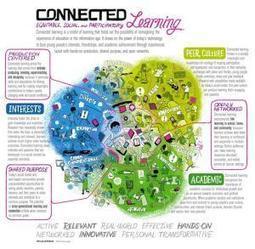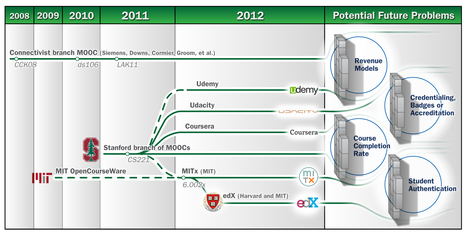[…] the authors set forth an initial set of architectural entities that describe and define a network of individuals associated together in order to collectively achieve some goal. As the title implies, these associations are focused on learning but in a very broad sense that includes formal education, informal and professional learning, and social action. The structures that we devise and sustain to support this learning are referred to as networks – aggregations based upon connections of people and resources, that in this context are focused on learning – and of course doing so productively.
Via Peter B. Sloep



 Your new post is loading...
Your new post is loading...














The scooped article reviews a book edited by Lucila Carvalho and Peter Goodyear. It contains a collection of stories on networked learning that share the intention to look at learning networks as designed entities. As one of the contributors to the book I should say no more about it and let Terry Anderson’s review speak for itself. However, if his review does wet your appetite I should perhaps confess that I myself am quite enamoured with the collection of articles that has emerged. I genuinely belief this book, to which I only made a very small contribution, marks an important step in the efforts to come up with a theoretical foundation for networked learning. @pbsloep
Terry Anderson is always worth a read. Productive learning networks seem to be very relevant to our current interactions on ocTEL